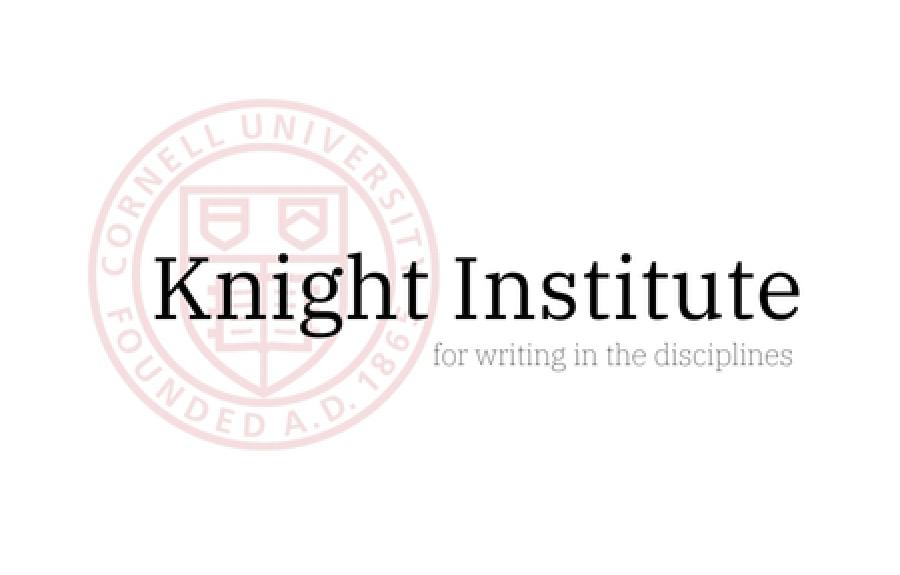The Archive of Teaching Material makes available the winning entries for the John S. Knight and James F. Slevin Assignment Sequence Prizes and the Knight Award for Writing Exercises. These sequences and exercises were produced for First-Year Writing Seminars at Cornell. At the time of this writing, materials originate from some eighteen departments and programs, ranging from Anthropology, to English, to Music, to Theoretical and Applied Mechanics.
The following link opens to “First-Year Writing Seminar Program”: eCommons Digital Repository. Once there you may choose to limit your search to the “Assignment Sequence” or “Writing Exercise” categories. [A note: short, introductory “descriptions” have been provided for all items. Items entered prior to January, 2014, were written by compilers of the archive, drawing on the language of the documents themselves.]
Some advice about searching: A search for the keywords “rhetorical situation” and “genre” will bring up many creative assignments that ask for papers with audiences, purposes, and genre other than the academic essay. You can, of course, also enter the name of a department or discipline or author, or anything else in which you are interested: the texts of all documents are fully searchable. Since most assignments require “preparatory writing,” that term will produce most of the materials in the archive. You will want to refine your search, therefore, to narrower interests such as “oral presentations” or “experiential learning” or “research paper.”
Further advice about searching: Using quotation marks in the search field may enhance accuracy (e.g. “primary sources” + Government – English). Since the word “history” is quite likely to appear in documents from departments across the board, we suggest that you use “Department of History” or “Hist” if you are searching for items specific to that discipline only. Other generic terms such as “evidence” or “argument” also appear quite widely; in these cases, Boolean operators (+ [plus] or - [minus]) can be used to good effect to narrow searches. For example, at the time of this writing, “evidence” turns up a large number of items, whereas “evidence + quotations” yields only about half the number; similarly, “paragraphs + transitions” lists about half as many entries as “paragraphs” alone. “Outlining - organization” yields only a fraction of the hits returned by either term alone. Furthermore, the truncating symbol “*” seems effective, too: “outlin*” (in order to embrace “outline,” “outlines,” “outlining,” etc.) turns up as many items as does “outlining.” “Quot*” yields nearly twice as many results as the more specific “quotations.” We suspect that the search may get less accurate the more severely you narrow the field.
We encourage you to experiment and to report to the Knight Institute any problems with searching or any suggestions about keywords: dlo1@cornell.edu.
This eCommons resource is available to Cornell instructors only and is hosted at Cornell University Library in the eCommons Digital Repository.

